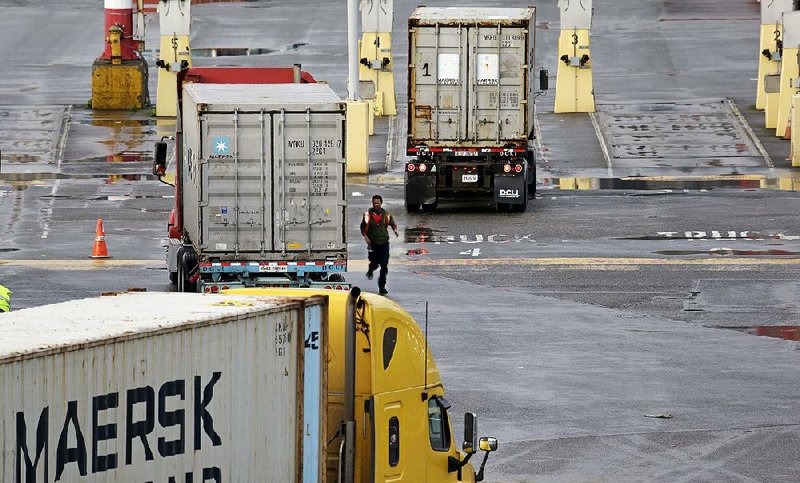Chicken feet are stuck on shore and electronics are stranded at sea.
The weekend shutdown of ports on the West Coast is threatening exports of agriculture products, such as meat cuts popular in Asia, and imports of Chinese-made goods, many of which are destined for retailers' shelves.
Though the ports reopened Monday, an ongoing work slowdown has Donnie Smith, chief executive of Tyson Foods, worried.
"Our primary concern about exports is coming from ongoing interruptions at West Coast ports, which is pressuring logistics that could eventually affect livestock producers if the situation isn't resolved soon," Smith said during an investor call Jan. 30.
Gary Mickelson, spokesman for Tyson, said Monday the slowdown may have already had an effect on pricing.
"We believe part of the recent decline in beef and pork prices experienced by the U.S. meat industry is due to the West Coast port slowdown," he said. "Shipping alternatives for the industry are limited, but we're actively seeking other channels."
The National Retail Federation is concerned as well. The federation blasted the shutdown Friday, urging the International Longshore and Warehouse Union and Pacific Maritime Association to reach an agreement. Labor negotiations have stretched about nine months.
"Stop holding the supply chain community hostage," said Jonathan Gold, National Retail Federation vice president, in a statement. "Get back to the negotiating table, work with the federal mediator and agree on a new labor contract."
A study commissioned by the National Retail Federation and the National Association of Manufacturers found that a five-day shutdown would reduce the gross domestic product by $1.9 billion per day.
The longer a shutdown lasts, the larger effect it has per day. A 20-day stoppage would result in a loss of $2.5 billion a day, the study found.
Wal-Mart, which imports an estimated $20 billion in goods from China, said it has been able to successfully withstand months of slowdownsand the recent weekend shutdown because it uses multiple ports in the United States. The company has operations in Seattle and Tacoma, Wash.; Houston; Savannah, Ga.; and Norfolk, Va., in addition to Los Angeles.
"We haven't really seen any impact," company spokesman Aaron Mullins said. "We operate a diversified import network. That allows us to mitigate risk in these type situations and effectively flow our products to store."
Wal-Mart pledged in 2013 to purchase $250 billion worth of U.S.-made goods through 2023. Part of the motivation for increasing U.S.-made purchases was to help return manufacturing to the United States in order to cut down on the time and expense associated with importing merchandise.
Travis Justice, director of commodity and regulatory affairs and chief economist for Arkansas Farm Bureau, said exports of Arkansas row crops mostly flow through the Port of New Orleans, where they are shipped around the world.
He said the slowdown is a bigger issue for the meat industry. Because of delays, fresh chilled meat has to be frozen, decreasing its value, Justice said.
Most of the nation's red meat processing facilities are located closer to the West Coast than to other ports, making shipping through other ports less practical.
"Any lengthy delays are going to certainly affect the value of those products, which could eventually impact the value that producers sell animals for," Justice said. "The industry is certainly concerned with it. With shutdowns or significant slowdowns, it will affect value here at home."
Chris Bahn of the Arkansas Democrat-Gazette contributed to this story.
Business on 02/10/2015

